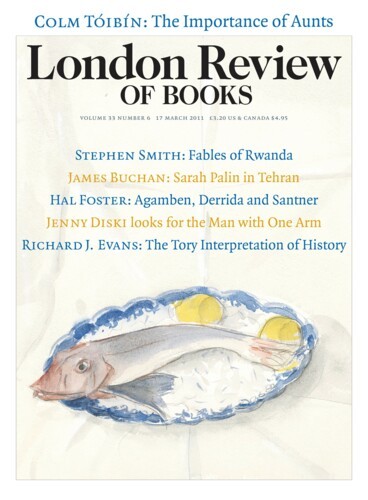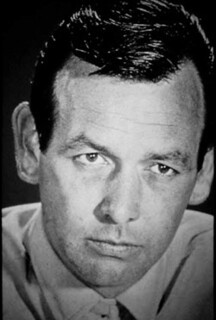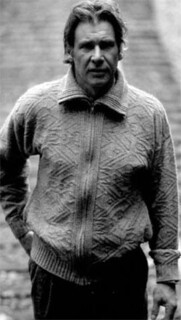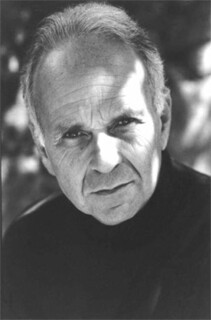Academics: beware of loving what you write about. Fandom can tempt intellectuals to take uncharacteristic risks with their primary sources. Even Stanley Fish, who as the author of Is There a Text In This Class? knows better than anyone how important the division of insider and outsider is for keeping amateurs at bay. In 1993, Fish-the-fan, enamoured of the American television series The Fugitive, joined the faithful at a convention in Hollywood to rerun, adore and discuss the episodes, to listen to actors and directors of the programme talk about their experience. There’s probably an internally understood hierarchy of TV series obsessives, but I don’t know where Fugitive-heads come in relation to Trekkies, Python freaks or Dynasty divas. On the other hand, and at the same time, Fish-the-intellectual wanted to write a book about The Fugitive as it ‘celebrated and anatomised the ethic of mid-20th-century liberalism’, and, without doing a Christopher Ricks, who unnecessarily upgraded Bob Dylan’s songs to Great Poetry rather than the more-than-adequate great lyrics that they are, also wanted to claim that there was enough serious and educated thought behind the creation of the series to merit his academic attention. It is central to his essay that the people who conceived, pitched and wrote The Fugitive were not simply writing popular fiction in a winning formula but, in setting up the drama series and conceiving each episode, had the conscious intention to explore the same ideas as Fish does in writing about it.
The result of the two Fishs, fan and philosopher, failing to keep out of each other’s way is instructive and, he says, ‘something I am still trying to understand’. When he attended the convention he ‘was ready to enter the world of diehard fans. I had thought I was one until I met the real thing.’ But he wasn’t there only as a punter. Before he left for Hollywood, Fish, the professor at Duke University who wanted to write about 20th-century liberalism in The Fugitive, contacted the show’s creator, Roy Huggins, who immediately offered to help him in any way he could. Huggins met Fish at the airport, chauffeured him to the events, had him round to dinner and arranged for him to interview writers, directors and actors who had worked on the series. Then the fan made his fatal move: Fish scribbled down an outline for a new film version during downtime in his hotel room, and instead of throwing it away or pitching it to HBO at a later date, gave it to Huggins to read the next morning. It was the last conversation or meeting he had with his enabler, the man who could confirm The Fugitive’s serious intent. Luckily, he had already got enough from Huggins to prove what he wanted: ‘Huggins was a summa cum laude graduate of UCLA who began graduate work in political science and wrote novels before he became a TV producer.’ Mortified by his exile, he asked other people from the series what had happened. ‘They laughed and said that the moment I showed Huggins the outline, I was no longer the Duke professor who was going to honour his creation by making it the object of an academic analysis. I had become instead a competitor trying to horn in on the action.’ He’d like to think, Fish says, that he wasn’t after a piece of the action, but honourably engaged and ‘wanting nothing for himself’, and in that way just like Dr Richard Kimble, the honourable, though much more reluctantly engaged fugitive.
The series ran to 120 episodes, and was on US television from 1963 to 1967. The finale had the highest ratings of any TV show until the answer to the question of who shot JR was revealed (can anyone now remember?). In 1993 The Fugitive was made into a huge action movie with Harrison Ford and Tommy Lee Jones, and then briefly resuscitated in modern dress for TV and DVD in 2001. In the original, the story starts before the series begins. Richard Kimble, a paediatrician, got home one night, having left to cool down after an argument with his wife about her refusal to adopt a child, to find her dying; a one-armed man (or more precisely, The Man With One Arm) knocked Kimble out and escaped from the house. The police didn’t swallow TMWOA story and charged Kimble, who was tried and convicted of first degree murder. This only comes out bit by bit as the series unwinds, while before the start of the first (and every) episode we see what scriptwriting mentors would call the series’ inciting incident: Kimble is on a train, handcuffed to his nemesis, Inspector Gerard, travelling to his place of execution. The train is derailed and Kimble escapes, stumbling in the dark through a murky creek with nothing but the odd frog for company. He leaves behind the increasingly obsessed Gerard to hunt him down over the next five years, always threatening Kimble’s freedom to wander, ostensibly in search of TMWOA, but actually arriving at or already working in a different town each week, where he is obliged by his innate character to confront and resolve the ethical dilemmas of the strangers he meets.
It is a perfect structure for a TV series, Fish points out. Like Rawhide and Wagon Train, the overarching story is the excuse for continual movement towards a MacGuffin (the cattle auction, the West, TMWOA) which provides weekly single dramas, the real meat, town by town, along the way. The other great formula (and probably cheaper because you can reuse the same set) is to have your protagonist(s) keep still and let a story turn up each week. Medics and hospitals are excellent in this respect, but ranchers, sheriffs and law firms are good too. What makes The Fugitive different, Fish claims, is not its structure, but the civil and moral character of Dr Richard Kimble, and his shadow, the single-minded Inspector Gerard. Gerard states the crucial centre of the series in the very first episode – although Fish, taking disparate episodes as markers of philosophical and ethical strands, doesn’t get to it for a while. We see Gerard in his office six months after the escape: his worried superior is trying to get him to think about other crimes and criminals he might be concerning himself with, rather than just the one who got away (not TMWOA, but Kimble). Gerard is terse: ‘I enforce the law.’ His boss, catching something troubled, asks: ‘Do you believe in the man with one arm? Do you think the law made a mistake?’ Gerard’s chin juts; turned away from his superior and looking directly at the camera, clearly as troubled as his boss believes him to be, he replies: ‘Let others debate and conclude. I obey. I was merely an instrument of the law.’
Characters are inclined to talk like this in The Fugitive, in complete sentences and in a way that makes sure no iota of serious intent goes unattended. But it’s probably better than Bonanza, where people mostly say ‘Aw shucks’ and push each other into horse troughs. Inspector Gerard is steadfastly doing his duty. He must catch the man, who having been proclaimed guilty by the law, got away while in his charge. It doesn’t matter if Kimble is really innocent. He has been found guilty by due process, nothing else can or should concern Gerard. He has to return the man he lost to the electric chair. The law, his master, requires it. (This perfect blindness of the law as opposed to natural justice is frequently the basis for Law and Order, which usually ends with someone convicted in spite of moving extenuating circumstances, or a psychotic mass murderer getting off to kill another day, while the audience is left to ponder the ironies-yet-necessity of the American justice system.)
As The Fugitive progresses, Gerard puts his marriage and possibly his sanity at risk in his fervent and blind pursuit of Kimble. In one episode his wife is actually blinded and saved by Kimble, who eventually tells her who he is and makes her choose (traumatised enough, you would think by the accident and blindness) between her rescuer (justice) and her husband (law). She fails the test, or doesn’t, depending on your view of the sanctity of marriage. Fish compares it to Les Misérables, though the series reads to me like Crime and Punishment, but with the characters of Raskolnikov and Porfiry reversed. The lawman is now the passionate obsessive taking his actions from theory, while the putative criminal tries to set things right in both law and natural, psychological justice, for himself and others, wherever he goes. The law in The Fugitive is rigid and often quite useless at resolving real people’s real problems. This is restated in every episode during the unchanging preamble, as the portentous voice-over drones: ‘Laws are made by men, carried out by men, and men are not perfect.’ Kimble wanders around and takes the problems he comes across case by case, using insight rather than rules to sort things out. Perhaps this is something he’s learned from the injustice he suffered, or perhaps he was simply that kind of guy waiting for an opportunity, or catastrophe, in which to develop his true self – bad luck for Mrs Kimble but a great benefit to small-town America.
What is never in doubt is Kimble’s innocence. The audience is not asked to wonder about it, or even to worry much about Kimble being caught by Gerard, since that would mean the end of the series. There is virtually no tension, Fish points out, except within the weekly story that involves a stranger whom Kimble will engage and then pass by. At the end of every episode Kimble walks into the sunset, like any good Western hero. Kimble isn’t guilty, Kimble can’t get caught, but although Fish suggests that the mainspring of movement is his search for TMWOA, in the actual series it’s surprisingly rarely his stated reason for being wherever he happens to be in any given week. He’s in Tucson or the Missouri hills or West Virginia, working as a sailmaker or a bartender or a labourer or on the run. He’s there because he left the last place behind, having been exposed as a fugitive and threatened with capture, and this is where he’s got to. Only occasionally does he go somewhere because he has a clue to the whereabouts of TMWOA. The pretext of his restless movement is often not mentioned.
The Harrison Ford movie and the TV remake with Tim Daly as Kimble both begin with an on-screen show-and-tell of the murder and the real culprit’s escape, and make the quest for the bad guy central, so that Kimble is wherever he is in order to get closer to his goal. One clue leads to another. Progress is made towards the climax. The single drama format and the conventions of the late 20th and early 21st-century action movie make this essential, although both translations still suffer from the same lack of tension as the original, essentially contemplative series: clearly he won’t get caught and executed before he finds TMWOA, about whom there is even less doubt since he has already been seen. The viewers of the original TV series knew it was the journey not the destination that mattered. The movie tries to make up for the lack of longue durée by only being interested in visual excitement and going for the biggest blockbuster thrills of its time. Andrew Davis, the director, said that one of his aims was to produce ‘the best train crash ever seen on film’: a description with which it’s easy to agree on so many levels.
There’s no mention in the film, as there is in the Fish essay, of St Augustine, or the Johns: Milton and Rawls. Or of Isaiah Berlin’s view that ‘true liberty … consists in self-direction’ or of the ‘relation between faith as a guarantor of knowledge and knowledge provided by empirical inspection’. Nor does Harrison Ford show any sign of wondering about the distinction between freedom from and freedom to. You might say that David Janssen as the original Kimble maintains a similarly stony expression to the grim-faced Ford, and is also not often heard to quote Milton. Indeed Fish is clear that Kimble is a cipher, in himself empty, even boring. But there is something about him.
The compelling but unsmiling Janssen (he smiles – and sings – once, in an episode Fish declares a failure) is very neat and styled by the suburban 1960s, and he finds mostly ordinary trouble (love, hate, fear, guilt) among the ordinary people in small-town America, but never succeeds because of his special quality. It’s possible, Fish suggests, that this quality, which makes men and women confide in him, ask for his help and instantly believe in his innocence when they find out that he’s on the run, belongs precisely to his fugitive status. The emptiness of personality, the boring, static Kimble who never lets circumstance change him and has ‘no inner life at all’ is the shell of the settled family man and paediatrician he was before the crisis that took away his regular, suburban life. When, in the final episode, it’s all over, TMWOA found and Kimble exonerated, a reporter asks him what his plans are, now that he’s free and no one is after him. ‘See some of my family and get back to work,’ he replies, and surely some part of the 72 per cent of the American public who watched at home must have died, or at least sighed and got back to work. A real Chicago Sun-Times reporter took it further and the day after the series ended, wrote up an imaginary interview with the settled Dr Kimble, whom he finds mowing his lawn. Fish explains: ‘He’s willing to talk, but he says that he must continue to mow because “we’ve got a dinner date at the country club and she’ll blow her stack if I don’t finish the lawn.” “She” turns out to be his new wife … who, he says, is a bit of a shrew and “a little plump”.’
Kimble, unencumbered by houses, wives and lawns, can become his almost zen-like essential self, a vacuum that is the essence of his personhood and which must be protected from all interference and attachment. He becomes a wandering monk, or given the homilies he’s inclined to dish out, true though they might be, more like a peripatetic life coach. His humanity can’t say no when asked for help, even if it puts him in danger of discovery. But although his medical expertise means he can fix the odd broken leg when necessary, his help consists, for the most part, of showing and explaining to the strangers who ask for his help that the solution to their troubles is within themselves, in their capacity as individual, rational humans – at which point their eyes shine, and, having proved they don’t really need him, he runs once again for his life.
When he stumbles across the wonderful Sandy Dennis in the guise of a tomboy begging him to take her down from the hick West Virginia hills, where she runs unkempt and wild, to the structured, sophisticated world of the town so that her proper life as a woman can begin, he explains that she doesn’t need him, in spite of the fact that she’s just saved him from getting caught. ‘You can get down from this mountain. You don’t need me; you don’t need anybody. It’s all in yourself.’ ‘Or,’ as Fish suggests, and any proper guru will tell you, ‘it isn’t, and if it isn’t, no amount of money, number of friends, record of achievements will be enough.’
This permits Kimble to give the women a peck on the cheek or the men a comradely handshake and leave in the direction of out of town as fast as he can. This is the fugitive’s freedom, and also his condition of isolation: the dark side of liberalism, Fish calls it. Self-direction depends on never having anyone change your mind or soul or whatever it is. It is the drive to independent thought that runs a mile from advice or compromise, for fear of its turbid social implications and of being over-mastered. Fish cites the episode called ‘Ballad for a Ghost’ when Kimble meets a woman who is dying of a brain tumour and deliberately making her unwitting family and friends miserable. ‘Why do you want such hate from everybody?’ Kimble asks. ‘Only from the people I mean the most to.’ And Fish sees Kimble recognising a fellow alien who wants to ‘leave the world owing no debts, and were her death to generate grief and longing, those emotions would constitute a claim on her that she could not discharge from the grave’. Kimble signals his understanding; everyone dies but ‘at least you can do it the way you want – everything paid.’
Society and responsibility on the one hand, freedom from all emotional, economic and physical ties on the other. Or the Clint Eastwood of The Outlaw Josey Wales versus the John Wayne of The Searchers. Jimmy Carter and Michael Foot versus Reagan and Thatcher, say. In the end: the difference between the idealistic left and the libertarian right. Somewhere between, possibly, lies freedom that manages to find a way of living with concern and fellowship. This, Fish suggests, is Berlin’s positive liberty: ‘The liberty to choose what one will be mastered by, as opposed to the state of negative liberty in which you are mastered by nothing and can therefore walk away from anything.’
Damned if I know how that’s done, and given the prognosis for a post-flight fugitive, by both the Sun-Times journalist and Stanley Fish himself, neither does Richard Kimble.
Send Letters To:
The Editor
London Review of Books,
28 Little Russell Street
London, WC1A 2HN
letters@lrb.co.uk
Please include name, address, and a telephone number.




